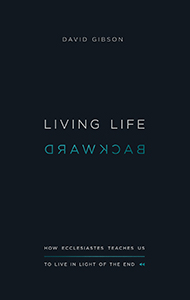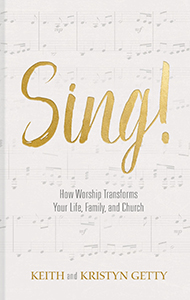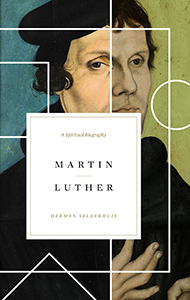 |
 |
 |
 |
Living Life Backward by David Gibson (Crossway 2017, $17.99)
Review by Sean Corser
What do you get when you blend commentary of one of Scripture’s most complex books (Ecclesiastes) with practical and biblical applications for everyday living? Living Life Backward by David Gibson.
Gibson begins each chapter with the passage of Ecclesiastes to be examined, then follows with the message of the chapter, and concludes with a set of questions to be examined. Gibson writes that the message of Ecclesiastes should not only understood, but applied.
Similar to the style of Ecclesiastes, Gibson uses many illustrations and metaphors to further drive home the message of the preacher. He writes: “There is a wonderful richness to the poetry that is worth lingering over.”
Gibson, using a firm understanding of the Preacher and the intention of his writing, unfolds the story of Ecclesiastes in a short yet compelling manner. But, as with the Preacher, Gibson intends for Living Life Backwards to be read with the hope of answering the question “How then should we live?”
Sing! How Worship Transforms Your Life, Family, and Church by Keith and Kristyn Getty (B&H 2017, $12.99)
Review By Miles Morrison
Keith and Kristyn Getty’s Sing! How Worship Transforms Your Life, Family and Church is part theological primer and part practical guidebook for the fundamental role of singing in the life of the believer. The Gettys start with the biblical foundation for singing and then work toward giving applicable advice for how to lead our churches and homes to do this well. Their hope is that “as you wake each day, and as you walk through your day, we pray that the lyrics and melodies of your faith will ring around the spaces where you live your life.”
The Gettys point to God’s design in creation as an emphasis for the important place of singing in our lives, “when we sing God’s praise, we join with the tune of the cosmos.” Singing even has an embedding effect on our hearts, so that our songs “reach the inner corridors of our soul in a way that other things cannot.” Ultimately, the Gettys’ primary aim is “that you would sing truth and sing it as though it is true” and it’s this narrowed focus that sets Sing! apart from other similar worship leadership books. “God has formed our hearts to be moved with depth of feeling and a whole range of emotion as the melody-carried truths of who God is and whose we are sink in,” they write.
Only a Holy God by City Alight (City Alight Music, $9.90 on iTunes)
Review by Matt Damico
Last December, Australian group City Alight released their album, “Only a Holy God.” The group has a sound that may remind listeners of another, larger Australian church known for its music, but that should not be cause for pause. These songs are theologically rich, poetically satisfying, and musically enjoyable and accessible.
Some highlights include “Christ Is Mine Forevermore,” a beautiful modern hymn that searches the idea of pain and suffering in the Christian life with a simple melody and a soaring refrain at the end. The album’s title track – with a question-and-answer structure akin to Sovereign Grace’s “Behold Our God” – is the most anthemic song of the bunch, with a melody both singable and climactic.
“Only a Holy God” is an excellent and well-executed collection of congregational songs. For churches looking for music that combines a contemporary sound with robust, trustworthy lyrics, this album has a number of songs to offer.
Luther: A Spiritual Biography by Herman Selderhuis (Crossway 2017, $30.00)
Review by Gabriel Reyes-Ordeix
“Luther was a problem.” These are the first words to the new spiritual biography of the German reformer by Herman Selderhuis. A contemporary reformer said of him, “This is how God gave him to us, and this is how we will have to use him.” Luther’s work in the gospel and his legacy of Protestantism were never separated from his unique persona, lack of self control and obstinate drive at times, but they by no means got in the way of God’s plan for the church through the reformer’s ministry.
Selderhuis’s work presents the life of Luther divided in 10 chronological stages—from a “soul snatching Devil”-fearing childhood to a monastic life prompted by St. Anna’s help; from a Romans-heavy tenure in Wittenberg to becoming the embodiment of a disputation against the Catholic Church in the very same place years later; and from a German Bible-translation pioneer to getting married to a former nun.
After the 95 Theses, in a threatening situation between the Catholic Church and those who identified with the reformer, his response was that “People should stop using my name, and instead of calling themselves Lutheran, they should be willing to be called Christian. What is Luther? The doctrine is not mine. And I have not been crucified for anybody. … How could I, a bag full of maggots, come to the point that people, the children of Christ, call themselves after my unwholesome name?”
In spite of his temperament, frequent lack of humility and quick exasperation, it is the common opinion that Luther is to be thanked for the church’s return to the Word. John Calvin, in agreement with this, wrote,“We must, and we will take him the way he is, because it was Luther who gave the gospel back to us.” Furthermore, he says that if everyone were to call Luther a devil, even then he would have honored him as a unique servant of God.
Luther was convinced that he had not sought the role of reformer. Rather, he presented himself as “Without being aware of it, God pushed me into working with the gospel. … The wisdom of God is greater than that of people. He simply blinded me as you would put blinders on a horse who must run on a racetrack. … I told him in my little cell that if he wanted to play a game with me, he should do that for himself. … He has powerfully heard this prayer.”




